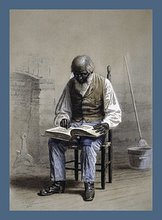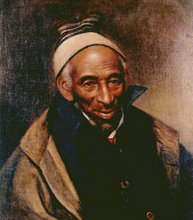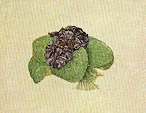I first came across the name of Henry Louis Gates, Jr., in reference to Africa, because he stirred up a hornet's nest of controversy over his charge that African chiefs were responsible for slavery because they had sold captive Africans to the slave traders. This is obviously a bowdlerization of what he said, but what he did say created a bitter conflict among leading Africans and African Americans engaged in African-African-American studies. I disagreed with Gates at the time. However, on the same trip that he made this "discovery," he also salvaged manuscripts from Timbuktoo, and just this kind of digging is so sorely needed for the effort to discover the truth about African and African American history and also made it clear that Gates loved Africa.
Now, with his PBS special for Black History month, African American Lives, Henry Louis Gates, Jr., has made a tremendous contribution to all Americans: he has discovered a way to trace African American roots backwards in time in the United States and all the way back to Africa. Gates took a number of stellar personalities among African Americans, including Whoopi Goldberg, Oprah Winfrey, Ben Carson, Quincy Jones, himself, and others and through painstaking digging in archives ferreted out the family tree of these well-known African Americans and then, on camera, presented these celebrities with the results. Most people had no idea of who their ancestors were or what they had done. Gates himself tried to find out how his great-grandmother had a house all her own in West Virginia after the Civil War, and did a DNA test on various relatives and a prominent local white family to determine if his grandmother's descendants had the same DNA as the man she worked for (which the family had for years assumed), only to find out that they did not! So the white man behind his ancestor's house and mulatto children remains a mystery man.
In each case in which Gates showed these stellar figures about their ancestors, they were deeply moved. They were filled; something that was heretofore hollow in them was filled. In some cases, they learned about white ancestors, slave owners. Or they learned how their family had hosted the black school in their district after the official black school was arsoned. Or they learned about how hard their ancestors had worked to get property and keep it. Or they learned how an ancestor who was a minister had refused to go north so that he could continue to lead his flock in the south.
In Part II of this series, Gates went even further. He recruited DNA experts to trace the DNA of these celebrities to their African roots. This is a contribution both of modern technology and Gates' heart. A white American may have lost sight of any ancestors who were not born in this country, but this is not really a problem for that white American, because he or she thinks of themselves totally as being an American. There is nothing in them held back to that commitment. But what if you are denied that identity as an American, as African Americans are? Then it becomes very important to know who you are. This knowledge is denied African Americans, who need that knowledge the most. As one African American friend of mine replied to an African who asked him, Where are you from?: "I don't really know." They both laughed, but it was a sad laugh for the African American.
With a DNA printout of peoples from all over the world, Gates and his DNA experts were able to isolate that part of the DNA that is passed on and on through generations and to match that with DNA types from various areas of Africa and to show the celebrities exactly from which area they had come from in Africa. In the case of Chris the comedian (I don't remember his full name), they then flew him to Angola to meet his tribe, who had been defeated in a war with the Portuguese and sold into slavery, and there was much rejoicing within this community in welcoming Chris back home.
After discovering where she came from, Whoopi Goldberg said, "This is my country. My country tis of thee." Maybe she meant Africa, but maybe she also meant the United States, because now she felt that she could hold her head high and belong.
Because they now knew where they came from, these African Americans could feel more truly American, because they no longer had to feel ashamed that they did not know where they came from. This is a tremendous contribution to the African American community in the United States and therefore to all Americans. If I were a Bill Gates, I would put up the money to enable every African American to know where they came from.
And what else might we find? In Gates' own family, he expected his mother's line at to least trace back directly back to Africa, but it traced to places like Dublin! Of course there was a lot of intermarriage between Irish and African Americans in the 19th century in the north. The DNA experts did manage to isolate Gates' African strain, I think tracing it back to areas of Nigeria. How many whites, we might ask, may be shown to have African blood?
Henry Louis Gates is a historian impassioned with the love of his people--and that love has borne nourishing fruit.
Friday, March 10, 2006
Subscribe to:
Post Comments (Atom)



No comments:
Post a Comment